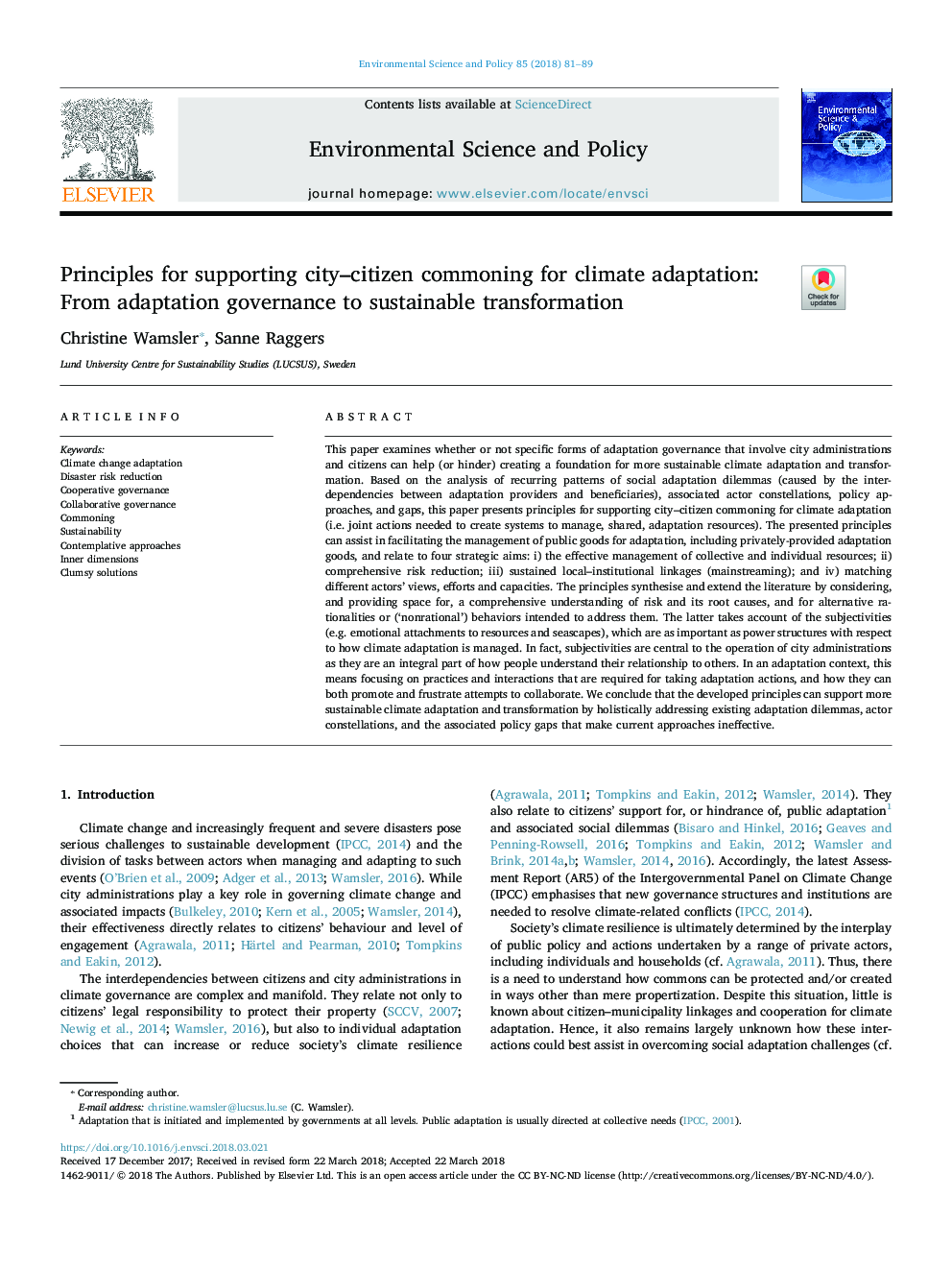| Article ID | Journal | Published Year | Pages | File Type |
|---|---|---|---|---|
| 7465929 | Environmental Science & Policy | 2018 | 9 Pages |
Abstract
This paper examines whether or not specific forms of adaptation governance that involve city administrations and citizens can help (or hinder) creating a foundation for more sustainable climate adaptation and transformation. Based on the analysis of recurring patterns of social adaptation dilemmas (caused by the interdependencies between adaptation providers and beneficiaries), associated actor constellations, policy approaches, and gaps, this paper presents principles for supporting city-citizen commoning for climate adaptation (i.e. joint actions needed to create systems to manage 'shared' adaptation resources). The presented principles can assist in facilitating the management of public goods for adaptation, including privately-provided adaptation goods, and relate to four strategic aims: i) the effective management of collective and individual resources; ii) comprehensive risk reduction; iii) sustained local-institutional linkages (mainstreaming); and iv) matching different actors' views, efforts and capacities. The principles synthesise and extend the literature by considering, and providing space for, a comprehensive understanding of risk and its root causes, and for alternative rationalities or ('nonrational') behaviours intended to address them. The latter takes account of the subjectivities (e.g. emotional attachments to resources and seascapes), which are as important as power structures with respect to how climate adaptation is managed. In fact, subjectivities are central to the operation of city administrations as they are an integral part of how people understand their relationship to others. In an adaptation context, this means focusing on practices and interactions that are required for taking adaptation actions, and how they can both promote and frustrate attempts to collaborate. We conclude that the developed principles can support more sustainable climate adaptation and transformation by holistically addressing existing adaptation dilemmas, actor constellations, and the associated policy gaps that make current approaches ineffective.
Keywords
Related Topics
Physical Sciences and Engineering
Energy
Renewable Energy, Sustainability and the Environment
Authors
Christine Wamsler, Sanne Raggers,
